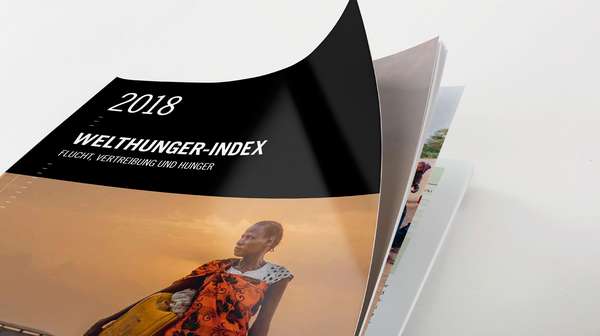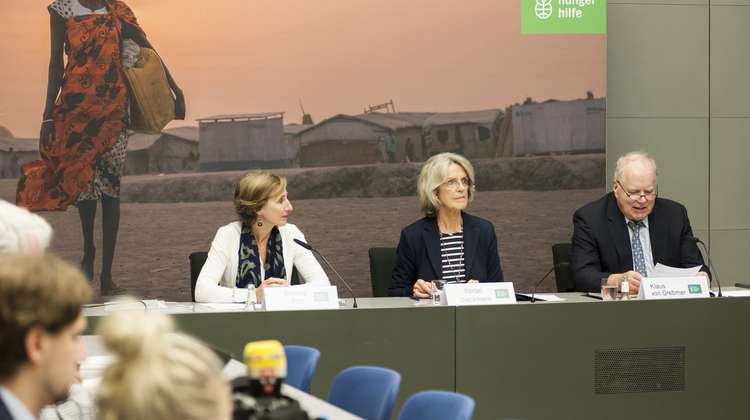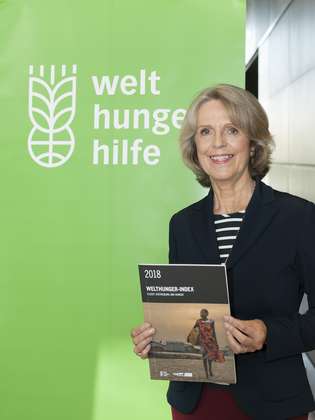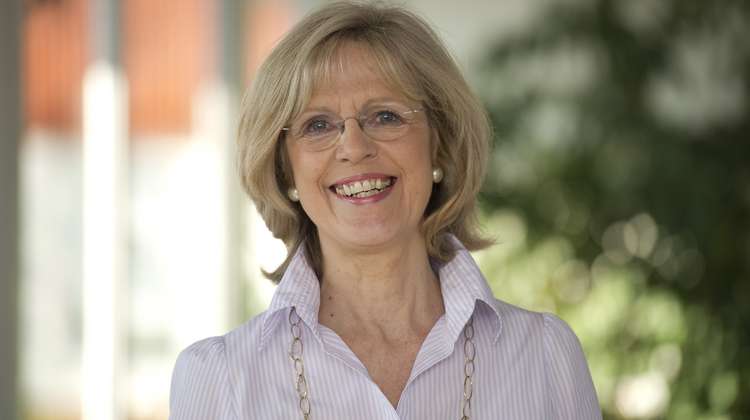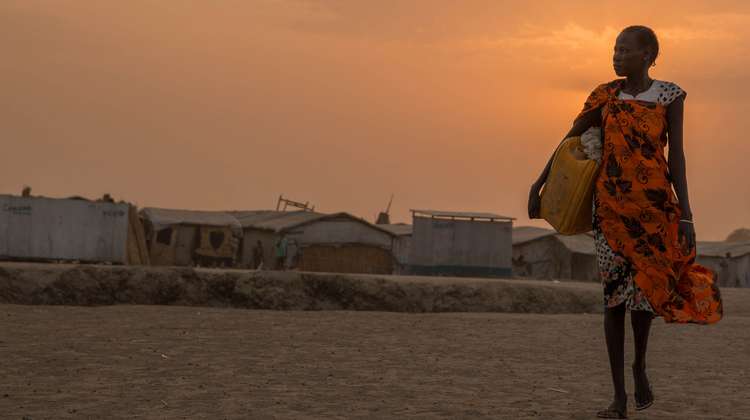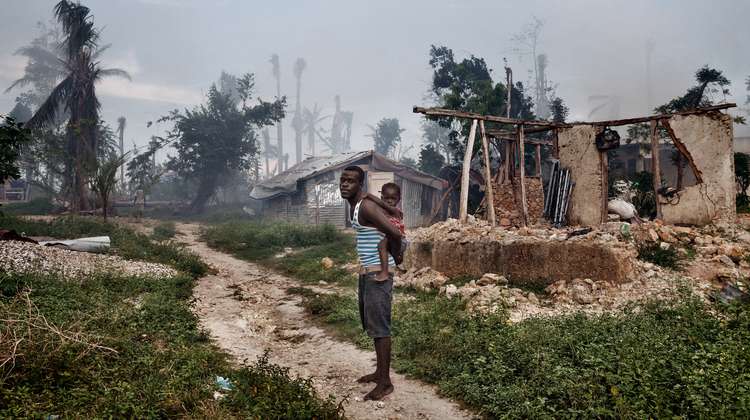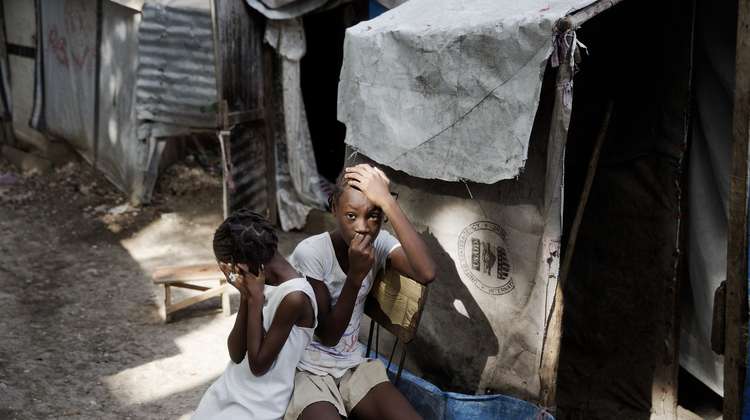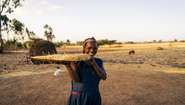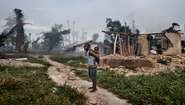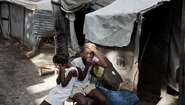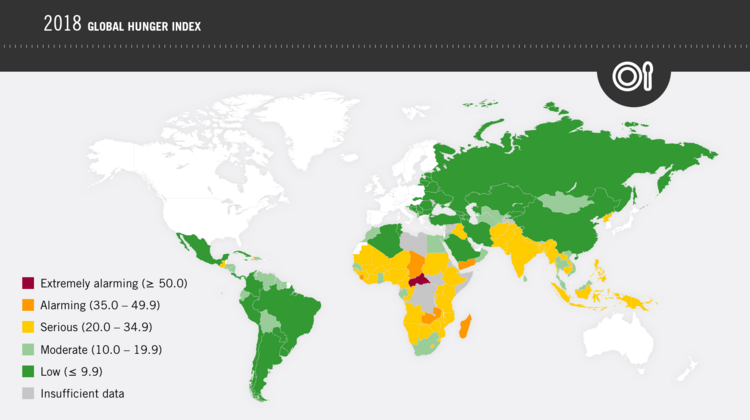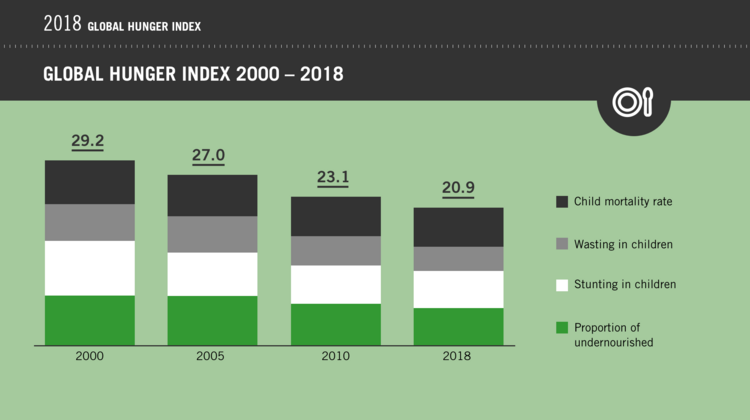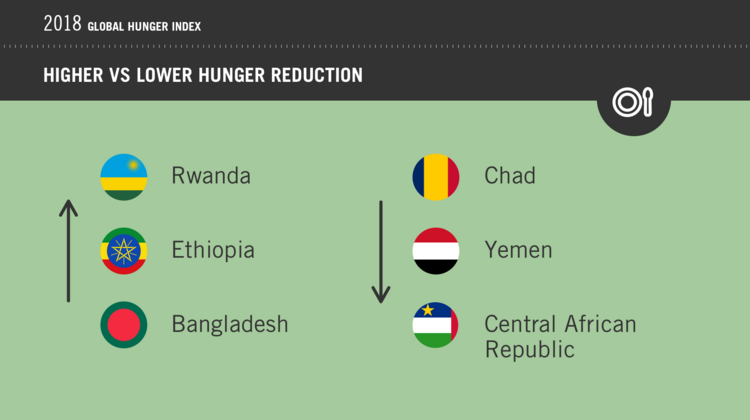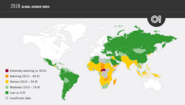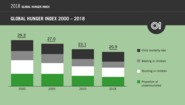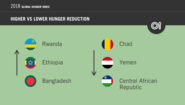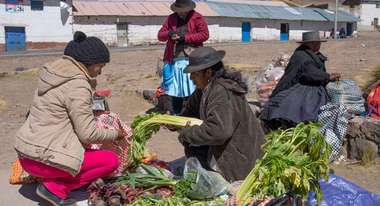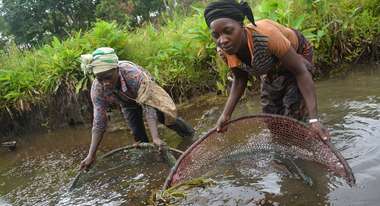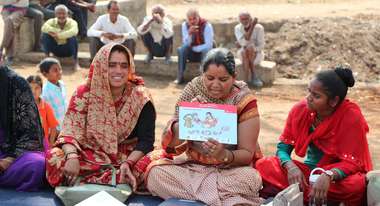Download the 2018 Global Hunger Index: report, synopsis, factsheet.
2018 Global Hunger Index
Ground being lost in the fight against hunger – German public wants greater engagement
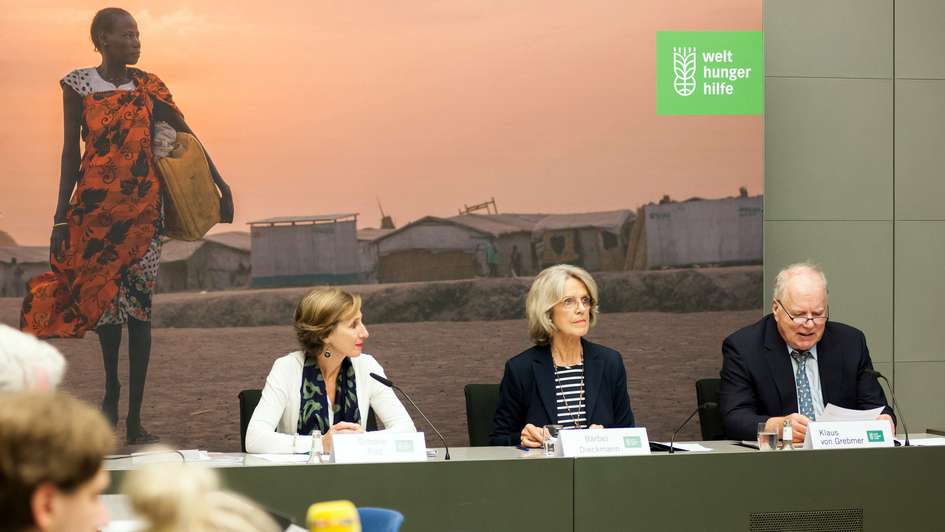
Bonn/Berlin, 11 October 2018 – Since the turn of the century, great progress has been made in the global fight against hunger. This is reflected in the new Global Hunger Index, which assesses the nutrition situation in 119 countries. Index scores related to hunger have fallen by 28% since 2000, and child mortality rates were halved in the same time frame. However, a recent spike in the number of people going hungry, to 821 million, has the current trend headed in the wrong direction. If the fight against hunger continues at its current pace, 50 countries will not succeed in eliminating hunger by 2030. This means that renewed efforts are required in the struggle against hunger—including in Germany.
“Welthungerhilfe commissioned an up-to-date survey from Infratest dimap, according to which the fight against hunger is important or very important for 90% of German citizens. In addition, development assistance is important or very important for 84%; among those who voted for the Great Coalition, this percentage exceeds 90%. These results represent a clear political mandate. Violence, conflicts, and the effects of climate change cause flight, displacement, and hunger. We will need sustainable political solutions to global conflicts in order to definitively defeat hunger,” underlines Bärbel Dieckmann, President of Welthungerhilfe.
The 2018 report shows that hunger is both a cause for and a result of flight and displacement. In countries experiencing armed conflicts, rates of hunger are twice as high as in the rest of the world. Over 68 million people worldwide—more than ever before—are living as refugees. “Most refugees remain in their native regions, where they require assistance as well. The host countries, which are often poor themselves, need more help. The refugees require not only basic social services but also access to education and employment. Humanitarian assistance alone is not enough,” says Bärbel Dieckmann.
Angola, Rwanda, Ethiopia, and Myanmar are the frontrunners in 2018 with an improvement in GHI scores of more than 45%. In contrast, 16 countries with a nutrition situation rated serious either made no progress or regressed. The highest hunger rates continue to be found in Africa South of the Sahara, with the Central African Republic still bringing up the rear.
Find the 2018 Global Hunger Index and additional press material at: http://www.globalhungerindex.org/ or follow #GHI2018
How the GHI scores are calculated
- The share of the population that is undernourished
- The share of children under the age of five who are wasted
- The share of children under the age of five who are stunted
- The mortality rate of children under the age of five
Welthungerhilfe is one of the largest private aid organisations in Germany and enjoys both political and religious independence. It is fighting for “Zero Hunger by 2030”. Since being founded in 1962, it has provided funding of EUR 3.53 billion for more than 8,900 overseas projects in 70 countries. Welthungerhilfe bases its efforts on the principle of empowering people to help themselves, which it implements with measures ranging from rapid disaster relief to rehabilitation to long-term development cooperation projects with national and international partner organisations.
Download High Resolution Press Images
Notice of Use: Please note that the images may only be used in a Welthungerhilfe context and may not be passed on to third parties. Images must bear the credit copyright "Photographer"/Welthungerhilfe. No long-term archiving. Please delete images after use!





